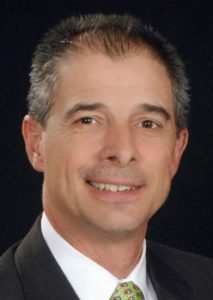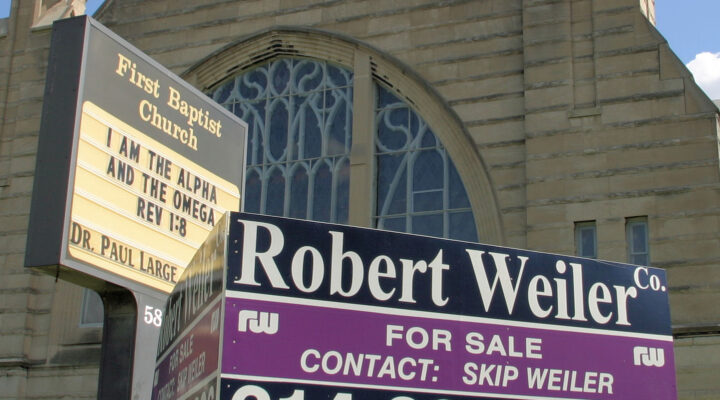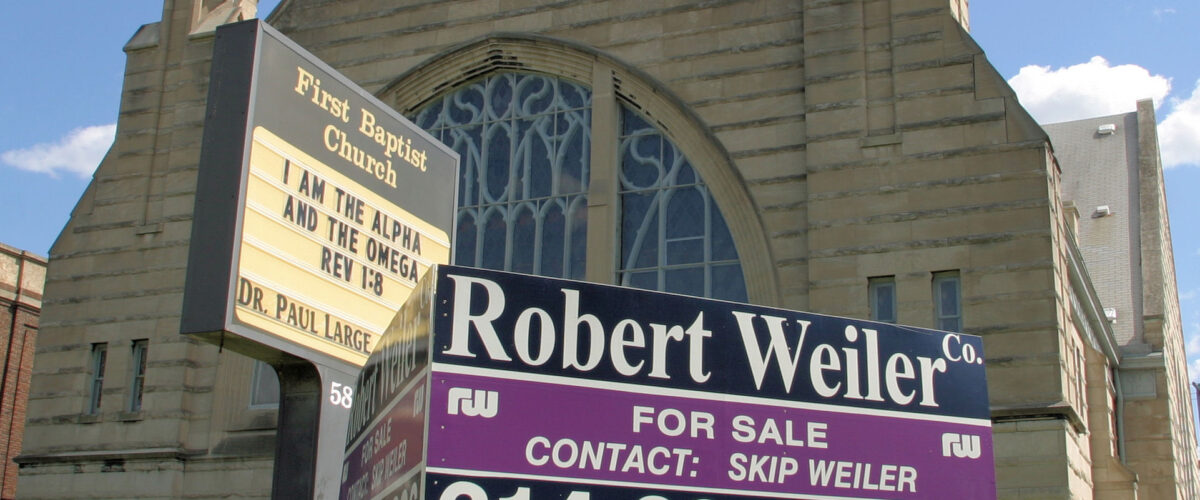It’s like I don’t recognize my own neighborhood. It happened overnight. Who are we? Where are we going? What are we becoming? And … what’s next?
I have been a pastor for two decades, and so much has changed in those years. Charlotte has been called “The City of Churches” because there are too many to count. But they’re going away.
Driving to work every day, I pass the Methodist church on the corner that had been a hub in a bustling neighborhood community. It’s been through a handful of pastors recently, and two weeks ago wire fencing appeared around the perimeter. This week the bulldozer showed up.

Russ Dean
Over the last decade, more than 5,000 U.S. churches have closed every year, and Religion News Service estimates that number will double, even triple in the coming years.
And everywhere, the world feels more secular. I’m typing from a coffee shop, early on a Sunday morning, and there may be more faces here than I’ll see from my pulpit in a couple of hours. Sunday is becoming just another day, and I encounter more and more people who are ambivalent about, if not antagonistic toward, religion. Atheists, agnostics, used-to-bes, exvangelicals, recovering Baptists — these “nones” are the fastest growing segment of American religious life.
People are moving in but not coming to church
For years we lived three miles from our church. Four years ago, we moved three miles down the road, and just before moving I counted eight condominium complexes under construction between home and church. Not eight houses. Eight condo complexes — and that was just in my “neighborhood.”
Thousands of people are moving into my corner of Charlotte every month, and almost none are coming to my Baptist church just down the street. In fact, very few are going to any church.
This week, in a conversation with friends who also are pastors, commiserating and celebrating, one asked, “Are you aware that the number of Americans who claim no religious affiliation is now 29%? That’s up 6% from 2016. That’s a lot.”
That number, from Pew Research, means there are roughly 95 million people not looking for a church when they move into our neighborhoods. This is almost 20 million more people not coming to our churches than just six years ago.
“That means in the 21 years I’ve been a pastor, the number of unchurched Americans has more than doubled.”
According to all-knowing Wikipedia, when my wife and I became co-pastors in 2000, at the Baptist church on the corner, only 14% of Americans claimed no religious affiliation. That means in the 21 years I’ve been a pastor, the number of unchurched Americans has more than doubled — 50 million people have left the church during my career (a fact I will not be putting on my resume).
Another value of church attendance
My two sons had the same fourth grade teacher, two years apart. She happened to be a minister’s wife, and I’ll never forget her telling us, “I can pick out the church kids in my class, every year, without a doubt.” When we asked how, she said it’s because church kids know how to behave, how to sit quietly, how to speak in front of the class, how to address adults. Apparently sitting through worship and going to Sunday school and singing in a choir, all that stuff we do in church, apparently that’s actually good for a child’s development. It’s not just about God.
All that “stuff” might actually be good for an entire culture, too.
But we may very well have to find another way to teach people basic manners and common etiquette and civility and honor and decency, because it’s hard to imagine turning this ship around. As far as I can tell, it’s getting worse.
What church is supposed to be
You see, what church is supposed to be about, if you just boil it down to the simplest of values, is love. Love of God. Love of neighbor. Love of God through the love of our neighbor. This is also true for the synagogue, the masjid, the ashram, the meeting house — and they’re also declining across the country. If you ask all those people who are leaving organized religion what church is about, however, love is about the last thing they will identify.
“What church is supposed to be about, if you just boil it down to the simplest of values, is love.”
Twenty-five years ago, a friend who was the founding director of a center tracking Christian mission activity around the world, who had spent many years as a Southern Baptist “foreign missionary,” told me he could no longer call himself a “Christian.” Because of his contacts with Christians all around the world he knew the word had come to mean something very different to many people. He said the word now was associated with a particular type of politics, not with the message of Jesus. (And this was 25 years ago.) This former Southern Baptist missionary, the executive of a prestigious university organization dedicated to global evangelism, could no longer use the word, “Christian.” He was now calling himself a “Christ follower.”
If that’s not proof enough that the church has lost its way, consider that the number of “evangelicals” has increased over the last few years — but many of those self-identified “evangelicals” are not Christian at all. Apparently for an increasing number of people “evangelical,” like “Christian” no longer has anything to do with Jesus.
Evangelical but not Christian
In a Christian Headlines article, Michael Foust addresses the issue: “The share of Catholics who … identified as evangelicals… rose to 15% in 2018 from 9% in 2008. … That same pattern appears with Muslims. In fact, there’s evidence that the share of members of the Church of Jesus Christ of Latter-day Saints, Orthodox Christianity and Hinduism who identify as evangelical is larger today than it was just a decade ago. Further… half of Muslims who attend services at a mosque more than once a week and align with the GOP self-identify as evangelical.”
“If your religion looks exactly like your political party, who needs church?”
The point is, if your religion looks exactly like your political party, who needs church? Well, as mean-spirited as our politics has gotten, if you are happy to let the GOP define your religion – you do! (The same could be said of any political party, of course, it’s just that Republicans happen to be the party gladly coopting evangelicalism for their political purposes these days.)
This isn’t good for my church, and it’s not good for The Church. It’s not even good for evangelicals, although most evangelicals fail to see this. Peter Wehner’s fine but disturbing article “The Evangelical Church is Breaking Apart” in The Atlantic, makes this clear: “The root of the discord lies in the fact that many Christians have embraced the worst aspects of our culture and our politics. When the Christian faith is politicized, churches become repositories not of grace but of grievances, places where tribal identities are reinforced, where fears are nurtured, and where aggression and nastiness are sacralized. The result is not only wounding the nation; it’s having a devastating impact on the Christian faith.”
The world is changing, and unless the Christian church gets back in touch with the love of God and the way of Jesus and learns to separate religion from our dysfunctional and mean-spirited politics, we’re going to become just one more footnote in the history of the 21st century.
Russ Dean serves as co-pastor of Park Road Baptist Church in Charlotte, N.C. He holds degrees from Furman University, Southern Baptist Theological Seminary and Beeson Divinity School. He and his wife, Amy, have been co-pastors of Park Road since 2000. They are parents of two sons. Russ is active in social justice ministries and interfaith dialogue. He is author of the new book Finding a New Way.
Related articles:
In BNG webinar, Ryan Burge details the double threat to denominational churches in America
Americans growing less religious and more strictly religious at the same time
Losing my religion | Opinion by Susan Shaw


